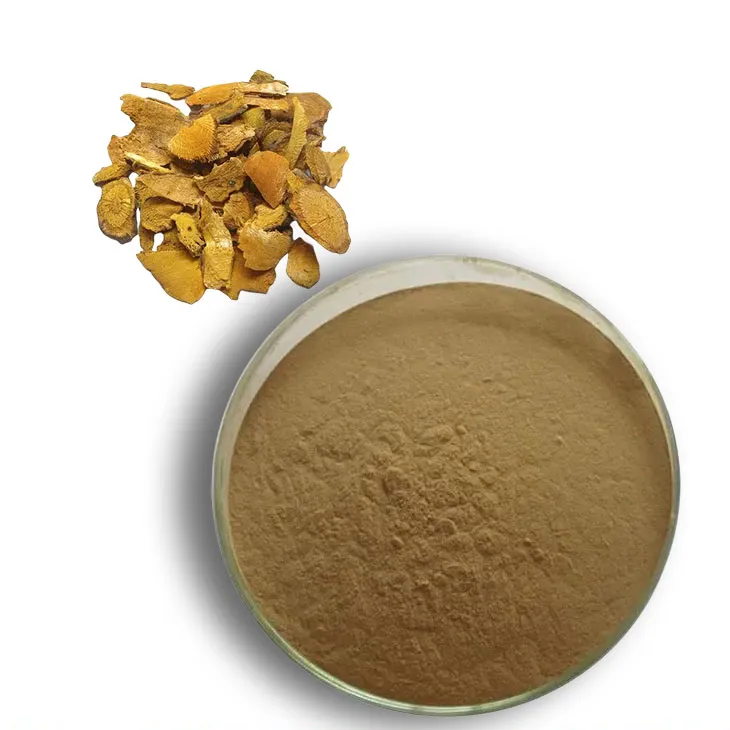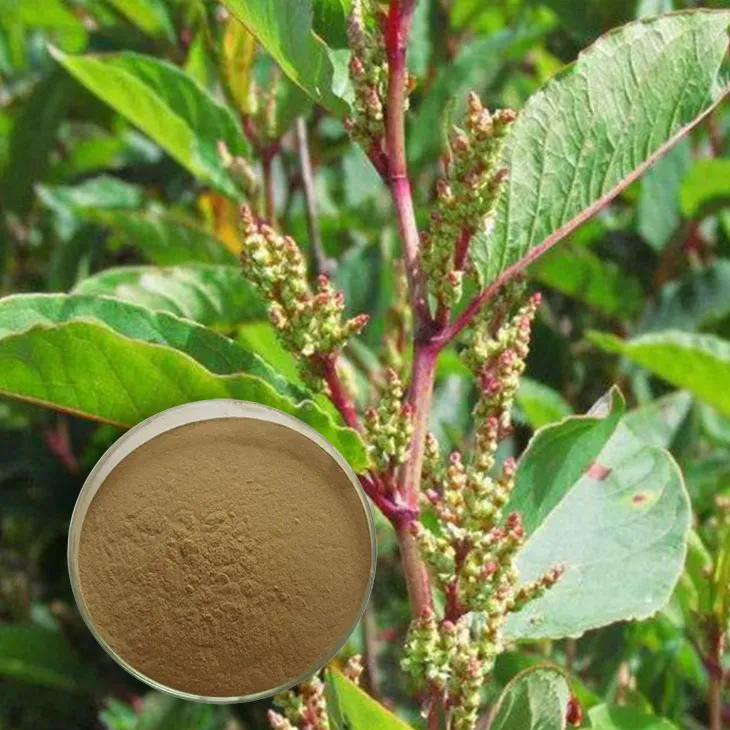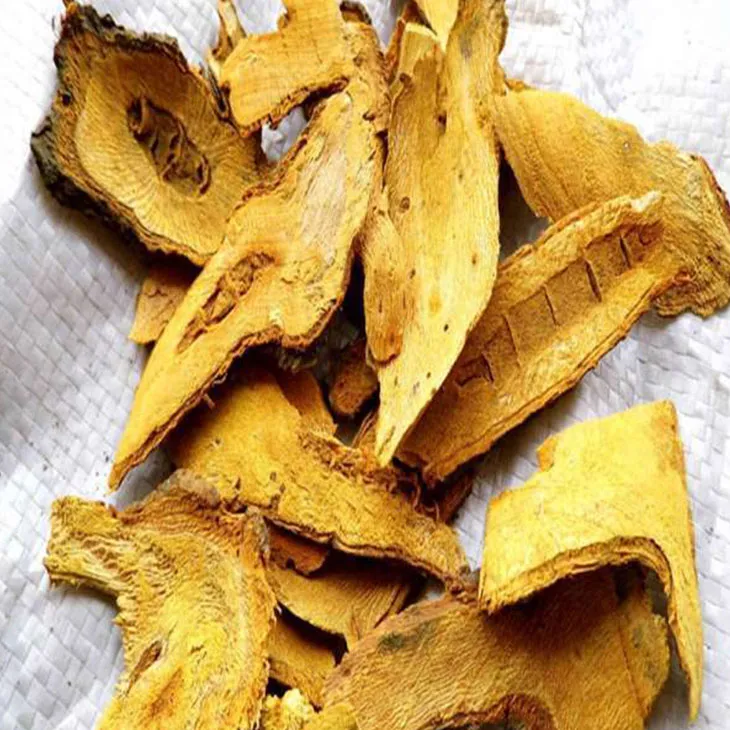- 0086-571-85302990
- sales@greenskybio.com
The Road Ahead: Future Research on Resveratrol and Giant Knotweed Extract
2024-08-24

Introduction
Resveratrol and Giant Knotweed Extract have gained significant attention in recent years due to their potential health benefits. Resveratrol, a natural compound found in various plants, including grapes and peanuts, has been studied for its antioxidant, anti-inflammatory, and anti-cancer properties. Giant Knotweed Extract, on the other hand, is derived from the plant Polygonum cuspidatum and has been used in traditional medicine for centuries. This article aims to explore the future research directions regarding resveratrol and Giant Knotweed Extract, highlighting their potential health benefits, mechanisms of action, and challenges in research.

Potential Health Benefits
Antioxidant Activity
Both resveratrol and giant knotweed extract are rich in antioxidants, which can help neutralize free radicals in the body. Free radicals are highly reactive molecules that can cause oxidative stress and damage to cells, leading to various diseases such as cancer, heart disease, and neurodegenerative disorders. Resveratrol and giant knotweed extract have been shown to have potent antioxidant activity in vitro and in vivo, suggesting their potential in preventing oxidative damage and promoting overall health.
Anti-Inflammatory Effects
Inflammation is a natural response of the body to injury or infection. However, chronic inflammation can lead to various diseases, including arthritis, cardiovascular disease, and diabetes. Resveratrol and giant knotweed extract have been found to have anti-inflammatory effects by inhibiting the production of pro-inflammatory cytokines and enzymes. These compounds may help reduce inflammation and alleviate the symptoms of inflammatory diseases.
Anti-Cancer Properties
Several studies have suggested that resveratrol and giant knotweed extract may have anti-cancer properties. Resveratrol has been shown to induce apoptosis (programmed cell death) in cancer cells and inhibit their growth and proliferation. Giant knotweed extract has also been found to have cytotoxic effects on cancer cells and inhibit tumor angiogenesis. However, more research is needed to fully understand the mechanisms underlying these anti-cancer effects and to determine their efficacy in clinical settings.

Mechanisms of Action
Resveratrol
Resveratrol exerts its biological effects through multiple mechanisms. One of the main mechanisms is through the activation of sirtuins, a family of NAD+-dependent deacetylases. Sirtuins play a crucial role in regulating various cellular processes, including metabolism, DNA repair, and apoptosis. Resveratrol can activate sirtuins, leading to the deacetylation of target proteins and the modulation of downstream signaling pathways. Additionally, resveratrol can also act as a phytoestrogen, binding to estrogen receptors and influencing estrogen-related signaling.
Giant Knotweed Extract
The mechanisms of action of giant knotweed extract are not fully understood. However, it is believed that the extract contains various bioactive compounds, such as flavonoids and phenolic acids, which may contribute to its biological activities. These compounds may interact with different cellular targets and signaling pathways, leading to the observed anti-inflammatory, anti-cancer, and antioxidant effects. Further research is needed to elucidate the specific mechanisms of action of giant knotweed extract.

Challenges in Research
Bioavailability and Stability
One of the major challenges in researching resveratrol and giant knotweed extract is their bioavailability and stability. Resveratrol has poor bioavailability due to its rapid metabolism and low solubility. Giant knotweed extract also faces challenges in terms of stability, as some of its bioactive compounds may be prone to degradation. Improving the bioavailability and stability of these compounds is crucial for their potential therapeutic applications. Various strategies, such as the use of nanotechnology and formulation development, are being explored to enhance the bioavailability and stability of resveratrol and giant knotweed extract.
Dosing and Safety
Determining the optimal dosing and safety of resveratrol and giant knotweed extract is another challenge in research. Different studies have reported varying effects and doses of these compounds, making it difficult to establish a consensus. Additionally, there is a need to conduct long-term safety studies to assess the potential risks and side effects of these compounds. Careful consideration of dosing and safety is essential to ensure the efficacy and safety of resveratrol and giant knotweed extract in clinical settings.
Interactions with Other Compounds
Resveratrol and giant knotweed extract may interact with other compounds in the body or with medications, which can affect their pharmacokinetics and efficacy. For example, resveratrol can interact with cytochrome P450 enzymes, which are involved in the metabolism of many drugs. Giant knotweed extract may also interact with other herbal supplements or medications. Understanding these interactions is important to avoid potential drug-drug interactions and ensure the safety and efficacy of these compounds.
Future Research Directions
Preclinical and Clinical Studies
Further preclinical and clinical studies are needed to validate the potential health benefits of resveratrol and giant knotweed extract. Preclinical studies should focus on elucidating the mechanisms of action, determining the optimal doses, and assessing the safety and toxicity of these compounds. Clinical studies should be conducted to evaluate the efficacy of resveratrol and giant knotweed extract in treating specific diseases, such as cancer, cardiovascular disease, and inflammation. Randomized controlled trials are particularly important to establish the clinical efficacy of these compounds.
Mechanistic Studies
In-depth mechanistic studies are needed to understand the molecular and cellular mechanisms underlying the biological activities of resveratrol and giant knotweed extract. These studies should involve techniques such as proteomics, genomics, and metabolomics to identify the key signaling pathways and target proteins involved. Understanding the mechanisms of action will not only provide insights into the therapeutic potential of these compounds but also help in the development of more targeted and effective therapies.
Formulation and Delivery Systems
The development of suitable formulation and delivery systems is crucial for improving the bioavailability and efficacy of resveratrol and giant knotweed extract. Nanotechnology-based delivery systems, such as liposomes and nanoparticles, have shown promise in enhancing the delivery and bioavailability of bioactive compounds. Additionally, the use of combination therapies with other drugs or supplements may also enhance the therapeutic effects of resveratrol and giant knotweed extract. Further research is needed to optimize the formulation and delivery systems of these compounds.
Quality Control and Standardization
Ensuring the quality and standardization of resveratrol and giant knotweed extract is essential for their research and commercial applications. There is a need to establish standardized methods for the extraction, purification, and analysis of these compounds to ensure their purity and potency. Quality control measures should also be implemented to monitor the stability and shelf-life of these products. Standardization will help in the comparability and reproducibility of research results and facilitate the development of safe and effective products.
Conclusion
Resveratrol and giant knotweed extract hold great promise for future research and potential therapeutic applications. Their potential health benefits, including antioxidant, anti-inflammatory, and anti-cancer properties, have been demonstrated in preclinical studies. However, further research is needed to overcome the challenges in bioavailability, dosing, and safety and to fully understand the mechanisms of action. Future research directions should focus on preclinical and clinical studies, mechanistic studies, formulation and delivery systems, and quality control. By addressing these challenges and conducting comprehensive research, we can unlock the full potential of resveratrol and giant knotweed extract and contribute to the advancement of healthcare.
FAQ:
What are the potential health benefits of resveratrol?
Resveratrol is believed to have various potential health benefits such as anti-inflammatory, antioxidant, and anti-cancer effects. It may also improve cardiovascular health and enhance insulin sensitivity.
What are the mechanisms of action of resveratrol?
Resveratrol acts through multiple mechanisms including activating sirtuins, inhibiting certain enzymes, and modulating cellular signaling pathways. These actions contribute to its various health effects.
What are the challenges in researching resveratrol and giant knotweed extract?
Challenges include obtaining pure and stable forms of the compounds, understanding their bioavailability and pharmacokinetics, and conducting large-scale clinical trials. There are also issues related to regulatory approval and commercialization.
Why is continued exploration of resveratrol and giant knotweed extract important?
Continued exploration is important as these substances may hold significant potential for developing new therapeutic approaches and improving human health. It helps to further understand their mechanisms and identify new applications.
What are some possible future research directions for resveratrol and giant knotweed extract?
Future research directions may include investigating the combination effects with other compounds, exploring their use in different disease models, and developing more efficient delivery systems. Additionally, studying their long-term safety is also crucial.
Related literature
- Resveratrol: From Laboratory to Clinic"
- "Giant Knotweed: A Potential Source of Bioactive Compounds"
- "Future Perspectives on Resveratrol and Its Derivatives"
- ▶ Hesperidin
- ▶ citrus bioflavonoids
- ▶ plant extract
- ▶ lycopene
- ▶ Diosmin
- ▶ Grape seed extract
- ▶ Sea buckthorn Juice Powder
- ▶ Beetroot powder
- ▶ Hops Extract
- ▶ Artichoke Extract
- ▶ Reishi mushroom extract
- ▶ Astaxanthin
- ▶ Green Tea Extract
- ▶ Curcumin Extract
- ▶ Horse Chestnut Extract
- ▶ Other Problems
- ▶ Boswellia Serrata Extract
- ▶ Resveratrol Extract
- ▶ Marigold Extract
- ▶ Grape Leaf Extract
- ▶ blog3
- ▶ blog4
- ▶ blog5
-
Grapefruit Seed Extract Powder
2024-08-24
-
Wheat Germ Extract
2024-08-24
-
Mulberry Extract
2024-08-24
-
Dan Shen Root Extract/Salvia Root Extract
2024-08-24
-
Garcinia Cambogia Extract
2024-08-24
-
Fig Extract
2024-08-24
-
Jujube Extract
2024-08-24
-
Citrus bioflavonoids
2024-08-24
-
Genistein
2024-08-24
-
Curcumin Extract
2024-08-24





















